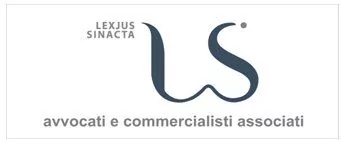Italy is a signatory of the Brussels Convention 1952.
If a ship is flying the flag of a state party to the 1952 Arrest Convention, arrest in Italy can be sought only with respect to maritime claims listed under article 1.1; if the ship is not flying the flag of a contracting state she can be arrested for the aforesaid claims as well as for any other claim for which arrest is allowed under Italian law (i.e. virtually any credit or claim against the owner of the vessel, including those not mentioned in the list of maritime claims set out by article 1 Arrest Convention).1
Italian Courts generally apply the 1952 Arrest Convention also for arrest of ships flying the flag of a non-contracting state, on the basis of a rather extensive construction and application of article 8.2 of the Convention.2
However, the position taken by Italian Courts on the issue is far from being settled and uniform: although the majority of the recent decisions for instance have held the applicability of the entire Convention including Article 7 on jurisdiction, such a possibility has been excluded by the Italian Supreme Court 20 years ago3, and quite recently by the Court of Trieste.4
An issue still controversial is the possibility to seek the arrest of a ship based on article 3.4 of the Convention if the claim is not secured by a lien: several Courts5 have declined to grant the arrest on the grounds that article 9 makes clear that the Convention does not create maritime liens, and that an arrest based on article 3.4 in the absence of a lien could not be subject to further enforcement against the owners and the ship.
The existence of a lien is determined by the law of the flag at the time the claim or credit arose. Italy is a signatory to the 1926 Liens and Mortgages Convention, and recognizes a list of maritime liens under article 552 of the Italian code of navigation, which largely coincide with the list contained under article 1 of the 1926 Convention.
A recent and quite detailed (but probably controversial) decision of the Court of Genoa6 has opted for the full applicability of article 3.4 of the Convention to arrests arising from claims vs. the charterer regardless of the fact that at the time the arrest is sought the charter-party is terminated, holding that the applicant is entitled to obtain security in form of bankbook issued "to the order of the Court".
The Court has argued that the Convention does not explicitly require the actual existence of the contract at the time of the application, hence implying that the arrest is possible even following termination of the contract (provided that the claim is not time-barred), that Owners can seek some form of protection from risks of arrest arising from charterer's operations by asking the charterer to provide a suitable performance guarantee. The Judge has added (with a comment which may sound rather questionable to many readers) and that Owners are "likely aware of the employment of the ship" and can therefore foresee the liabilities which may arise from the conduct of the charterer.
The Court has furthermore held that the creditor can cash the sums deposited as security as soon as he has obtained a judgment liquidating the claim, and there is no need that the judgment is made against the guarantor; the decisions has therefore rather swiftly bypassed the notoriously thorny issue of the wording of the guarantee to be issued for the release of the ship in case the arrest is originated by a claim vs. the charterer and the party seeking the release is the registered owner.
An almost contemporaneous decision of the Court Trieste7 however proves that the issues are far from being settled.
Either under Italian law (art. 684 c.p.c) or pursuant to the provisions of the Brussels Convention 1952 on arrest of ships (art. V) Owners may obtain the release of the ship arranging the issuance of a suitable guarantee.
The options available in this respect are actually two: escrow or bank guarantee (or Club's LOU).
The first solution implies that the sums are deposited into a special bank account and authorization from the Court is sought to shift the arrest from the ship to the sums. Funds are kept under escrow and released upon authorization of the Court if the claimant proves that it is entitled to receive the payment out of the money.
The escrow solution is generally adopted either where the applicant refuses to accept a guarantee, or where the Owners wish to challenge the arrest, since the arrest order is simply shifted onto the sums and the defendant is therefore allowed to challenge the arrest after the release of the ship.
The second option is a guarantee payable against an enforceable judgment issued by a Court having jurisdiction, or payable against an award or agreement, based upon wording which normally is the one currently used for the standard P&I LOU forms. In this case the arrest is withdrawn against the release of the guarantee, and there is no more possibility to challenge the arrest.8
A crucial issue is the wording of the guarantee, which may be difficult to agree upon where the arrest is sought in respect of a claim against the disponent owner/charterer; it is generally possible to agree upon the issuance of a LOU with such a wording to cover also a claim against the disponent owner/charterer on the ground that the claim is secured by a lien on the ship, but when no lien exists the issuance of the guarantee gives frequently rise to heated debates.
In the matter decided by the Court of Trieste Giuliana Bunkeraggi had a claim arising from unpaid supplies in favor of two ships belonging to different owners, both time chartered to Maxima S.r.l. at the time the supplies were requested.
Giuliana arrested one of the ships, and Owners obtained the release by depositing the amount claimed in form of bankbook. Giuliana then summoned before the Court of Trieste the r/owners and the time charterers, asking the Court to hold that the claim was secured by a lien on the ship and that they were entitled to enforce the claim on the security provided by the Owners.
The Court has rejected the view that pursuant to article II.5 of 1926 Brussels Convention or pursuant to Turkish law a claim arising from unpaid supplies of bunker contracted by the time charterer is secured by a lien, and has accordingly rejected the request of enforcement of the claim on the guarantee, which has been consequently released in favor of the registered owners.
Footnotes
1Court of Appeal of Genoa, 12 February 2000, Morsviazputnik Satellite Communications Navigational c. Azov Shipping co.; Court of Venice, 6 October 1999, Elmar Shipping Agency c. Turkmen Shipping
2 Court of Genoa, 22 March 1994, Galaxy Energy International ltd. c. Soc. agenzia maritt. Dolphin
3 Cassazione, 25 May 1993, Equinox Shipping Co.
4 Court of Trieste 14 August 2008, Ramazan Gunduz c. UN Ro-Ro Isletmeleri
5 Court of Ravenna, 23 march 2000, Jakil c. International Transportation co. ltd; Court of Ravenna, 4 August 2001, Aagaard Euro Oil c. Sea Frantic co. ltd; Court of Venice 5 June 1998, Exnor Craggs ltd. c. Companie Navigatie Maritime Petromin
6 Court of Genoa, 19 February 2010, Alpha Trading c. Venezia Shipping
7 Court of Trieste, 16th November 2010 Giuliana Bunkeraggi c. Maxima S.r.l. e ONUR Denizcilik Ve Petrol Urunleri
8 Court of Genoa, 6 December 1994 Marline Universal Shipping co. c. Mediterranean Overseas Shipping Agency
The content of this article is intended to provide a general guide to the subject matter. Specialist advice should be sought about your specific circumstances.

